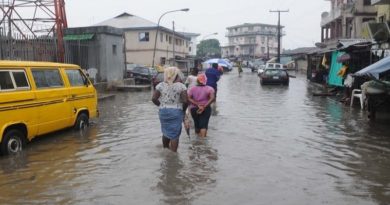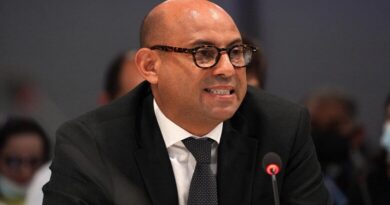New report urges World Bank Group, countries to prioritize action against pollution
The World Bank Group and its client countries should give more priority to countering pollution, including actions that simultaneously help address climate change, according to a report by the bank’s internal evaluators.
The Independent Evaluation Group found that support for pollution action from the World Bank Group and other development partners has not kept pace with the increasing levels of pollution. Countries also need to devote more resources to the problem, it said.
Environmental degradation accounts for nearly one in four of all deaths worldwide, or 12.6 million people a year, as well as a barrage of other health problems and the degradation of key ecosystems and natural resources. Leaders from government, business, science and civil society meet at the United Nations Environment Assembly this week to address this growing threat.
“It’s clear that the world needs to pay far greater attention to the issue of pollution in all its forms”, UN Environment head Erik Solheim said. “It costs millions of lives, suffocates economies and deprives future generations of the resources they will need. It’s an issue on which we need to see far greater leadership: from governments, from the financial sector and enterprises and from consumers.”
According to the evaluation report, Toward a Clean World for All – An Evaluation of the World Bank Group’s Support to Pollution Management, pollution-abating projects accounted for about 9 per cent of the Bank Group’s 2017 portfolio. Since 2004, it has committed $43 billion to finance 534 pollution-relevant interventions in over 100 countries.
Most interventions supported the brick-and-mortar construction of water supply, wastewater and waste treatment facilities. Only a small number of projects focused on outdoor and indoor air pollution, which are responsible for the large majority of pollution-induced deaths in developing countries.
“The World Bank Group is uniquely positioned to help countries integrate pollution into their development agenda through policy dialogue and diagnostic work,” said Stefan Apfalter, who led the evaluation team. “However, from our findings, only a few World Bank Group-supported country strategies reflect pollution as a priority.”
The report calls for improvements in national pollution monitoring systems and encourages the bank group to systematically integrate pollution into its growing climate mitigation portfolio, given the significant co-benefits of addressing both pollution and greenhouse gas emissions together.
The evaluation found that less than one third of the World Bank Group country strategies completed since 2004 identified the major pollution concerns explicitly or addressed pollution as a priority. At national level, it found that very few countries are actively monitoring pollution levels.
“Strengthening national pollution monitoring capacity is a critical first step to helping countries become aware of just how big the problem is,” said Caroline Heider, the director-general of the evaluation group.




